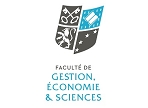Présentation
This course is designed to provide an understanding Globalization and the challenges raised by globalization for government action and economic policy. Since half of century the world has changed structurally as there has been an increase in global transactions. This globalization of economic activity involves the expansion of international trade between nations, but the growth in international financial flows has been much more significant. The 2007 crisis is a good illustration of how international financial flows spill over the US crisis to the rest of the world. Since then governments have been struggling to implement the “right “ economic policy to stabilize their economy and restart their economic activity. The revival of protectionism is an expression of discontent by the population in front of governments judged “unable” to improve the economic situation. The recent crises underlined the complexity of the globalized economic and the interconnectedness of the financial markets at the international level. It also underlined the tight links between financial markets and the banking sector. In front of that complexity central banks seems to believe that they had to “reinvent” monetary policy and they step into unexplored territories, especially the ECB given its young experience. Indeed the standard toolbox of macroeconomics has proven to be inadequate at the very early stage of the crisis. Monetary policy seems to have emerged as a powerful instrument to resume economic activity at least in the US. Today central banks actions have significant consequences especially on money markets but even on capital markets as well. At the same time the efficiency of their actions depend on the monetary regime. This point can be illustrated by comparing FED and ECB decisions in the last 10 years.
By the end of the course students should have a clear understanding of:
- How globalization is taken places?
- The importance of cultural environment in the financial and economic integration process
- The role of plicy maker in teh integration process
- The relationship between integration and fiancial and economic crises
- How integration impact monetary unions?
- Internation financial crises and global contagion
Here are the differents topics of each session
Session 1. An Introduction to world Economy (Gerber ; Ch. 1)
Session 2. Globalization : Impact and driven forces ( Wild Ch. 1)
Session 3. The Cultural Environment of International Business ( Cavusgil ; Knight ; Riesenberger Ch. 3)
Session 4. Foreign direct Investment (Wild Ch. 7)
Session 5. Regional integration (Wild Ch. 8)
Session 6. Government intervention and regional Economic integration ( Cavusgil ; Knight ; Riesenberger Ch. 7)
Session 7. International Integration (Pevehouse and Garfield Ch. 10)
Session 8. Financial Globalization : opportunity and crisis (Krugman Chap 9)
Session 9. Globalization of markets and internationalization of the firm (Cavusgil ; Knight ; Riesenberger Ch. 2)
Session 10. Global Market opportunity ( Cavusgil ; Knight ; Riesenberger Ch. 12)
Session 11. The United States in the world Economy ( Gerber Ch. 13)
Session 12. Optimum Currency area and the euro ( Krugman, Ch. 10)
Session 13. The European Union : many markets into one ( Gerber Ch. 14)
Session 14. International Monetary and Financial Environment ( Cavusgil ; Knight ; Riesenberger Ch. 9)
Session 15. International financial crises and global contagion (Ch. 12, Gerber)
Modalités
The teaching method is based on 15 lecture-discussion sessions of 2 hours each. Reading the chapters indicated in the course tentative schedule from the reference textbook before each session is highly recommended in order to get ready for the pop quiz- using the quizbox - at the beginning of each class. At the beginning of each session basic principles will be recalled. The remaining of the session will be dedicated to discussion of current issues and team presentation. It is essential to read before each session since it contributes to make the student active during class. The course PPT as solutions to quizzes will be available on Moodle in order to make sure that students take notes during class.
The continuous assessment is partly based on quizzes and team presentations discussing current issues during class. The quizzes checked that students understand the basics and team presentation is an opportunity for each team to master current debates. Finally, the final exam takes the essential of the module learned during the semester so that instructor could verify that they have well understood key notions discussed in class.
Ressources
<b>Reading the reference books is highly recommended.</b>|||| - International Business : The New Realities, 5th Edition ; Tamer Cavusgil, Gary Knight, John Riesenberger (2020)|| - International Economics, 7th Edition, Gerber (2018)|| - International Finance : The theory and Policy, 11th Edition ; Paul Krugman, Maurice Obstfeld and Marc Melitz (2018)||






